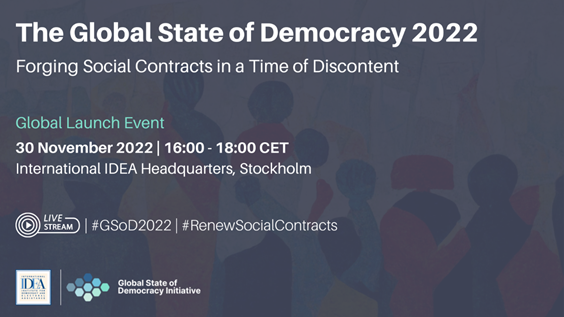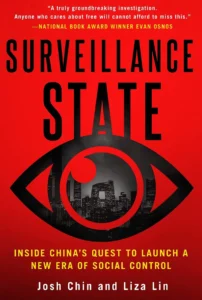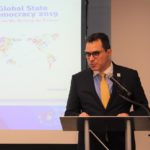 The war in Ukraine is generating the dissolution of Russia’s ‘social contract’ under which the regime promised security and stability in exchange for political docility, observers suggest.
The war in Ukraine is generating the dissolution of Russia’s ‘social contract’ under which the regime promised security and stability in exchange for political docility, observers suggest.
Putin’s mobilization has torn up that social contract, according to analyst Ruslan Suleymanov. Suddenly, tacit approval is no longer enough. Now everyone is suddenly expected to publicly declare their support for the regime, many even with a weapon in hand and at risk of death, he writes for IPS.

Levada
“Vladimir Putin himself called social and economic stability in society his most important achievement after Boris Yeltsin. The word ‘stability’ has become the motto of his rule. But now Putin himself has become a source of instability,” says the Carnegie Endowment’s Alexander Baunov.
According to surveys by the non-governmental Levada Center, only 24 per cent of Russians approve of the war, with support falling considerably from March to October.
As Wall Street Journal reporters Josh Chin and Liza Lin argue in their new book Surveillance State, the Chinese government has managed to build a new social contract with its citizens: they give up their data in exchange for more precise governance that, ideally, makes their lives safer and easier (even if it doesn’t always work out so simply in reality), notes MIT’s Zeyi Yang.
 If we think of democracy as public control over decision-makers and decision-making and equality in the exercise of that control, it follows that social contracts are at the heart of democracy, notes International IDEA. Social contracts define the issues that decision-makers must work on, and they stipulate how people can hold those decision-makers accountable for upholding (or not) their ends of the deal. If people feel that the terms of the contract are not fair or are not being respected by the government, the latter risks losing legitimacy.
If we think of democracy as public control over decision-makers and decision-making and equality in the exercise of that control, it follows that social contracts are at the heart of democracy, notes International IDEA. Social contracts define the issues that decision-makers must work on, and they stipulate how people can hold those decision-makers accountable for upholding (or not) their ends of the deal. If people feel that the terms of the contract are not fair or are not being respected by the government, the latter risks losing legitimacy.
To rebuild and revitalize democratic institutions and to re-establish trust between the people and their governments, there is a need for new and innovative social contracts that better reflect the changing global environment and that meaningfully prioritize equity of access to the mechanisms of participation. In this context, International IDEA presents two new knowledge products under the Global State of Democracy Initiative:
- The Global State of Democracy 2022: Forging social contracts in a time of discontent
- Democracy Tracker, a new, monthly updated, qualitative database of democracy and human rights developments
 The findings from the latest flagship report, The Global State of Democracy 2022: Forging Social Contracts in a Time of Discontent, will be presented on 30th November 2022, from 16:00 to 18:00 CET.
The findings from the latest flagship report, The Global State of Democracy 2022: Forging Social Contracts in a Time of Discontent, will be presented on 30th November 2022, from 16:00 to 18:00 CET.
Opening
- Dr Kevin Casas-Zamora, Secretary-General of International IDEA
Keynote
- Jutta Urpilainen, European Commissioner for International Partnerships
- Michael O’Flaherty, Director, EU Agency for Fundamental Rights
Presentation of the Global State of Democracy Report
- Dr Seema Shah, Head of Democracy Assessment, International IDEA
Panel Discussion
- Heidi Hautala, Vice-President of the European Parliament, (via video link)
- Delia Ferreira, Chair of Transparency International (via video link)
- Prof. Azza Karam, Secretary General, Religions for Peace International (via video link)
- Dr Julia Leininger, Chair, Transformation of Political (Dis-)Order, German Development Institute
Moderator: Sarah Crowe, Senior Consultant, UN Communications
Closing Remarks
- Jason LaTorre, Ambassador of Canada to Sweden
- Melanie Joly, Canada Minister for Foreign Affairs (TBC)
- Tobias Billström, Sweden Minister for Foreign Affairs
To participate, register now for the virtual event or watch on YouTube below.
If you only have time to read one essay on the fate of freedom in the world, make it this one by @LarryDiamond. https://t.co/B8tndjDGk1
— Journal of Democracy (@JoDemocracy) November 22, 2022







